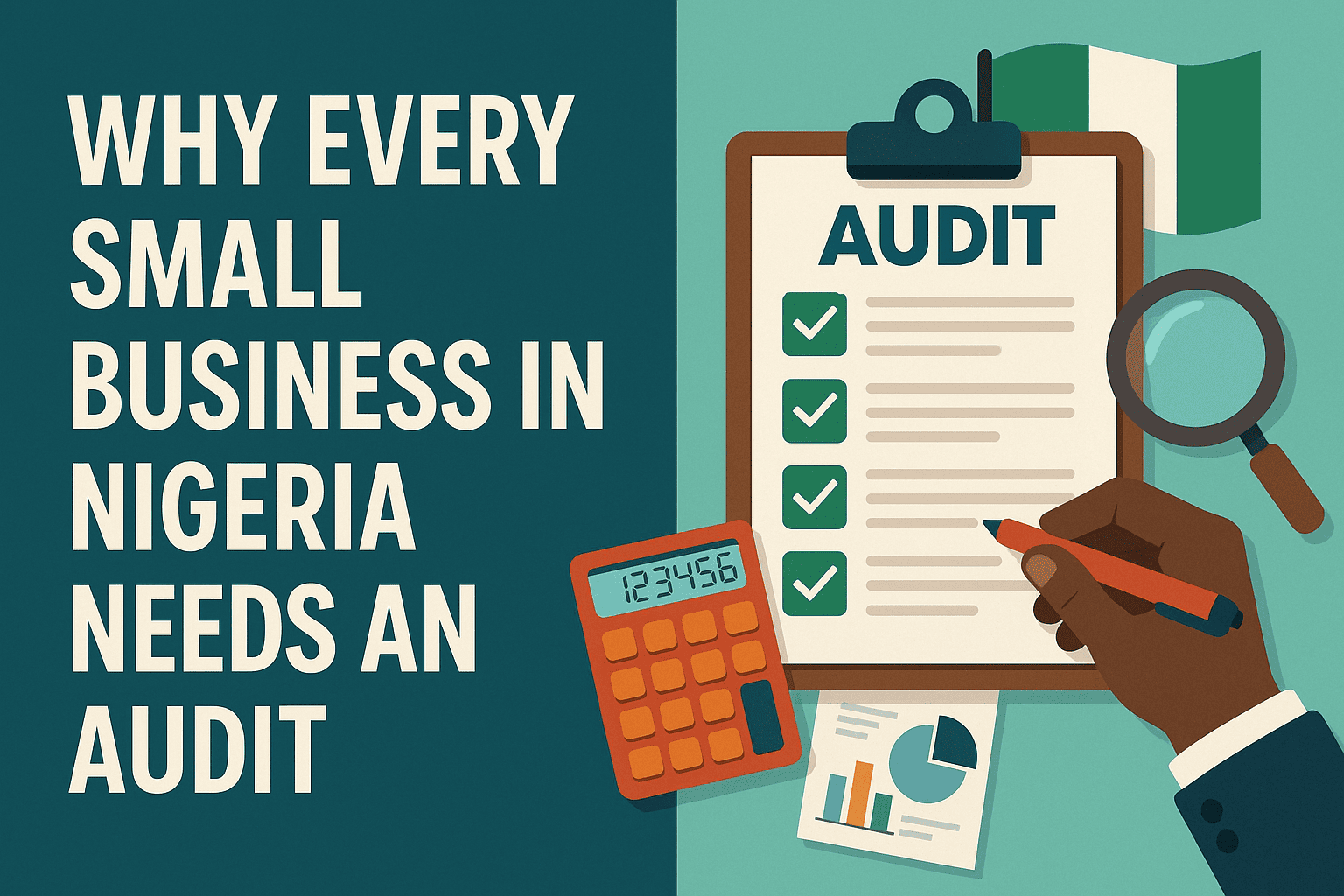The Role of Audits in Building Trust with Stakeholders: Why Every Small Business in Nigeria Needs One

Are you a Nigerian small business owner, freelancer, startup founder, or entrepreneur wondering why stakeholders hesitate to do business with you? Building trust and credibility is paramount for success in Nigeria’s dynamic business landscape. This article explores how audits can transform your business from surviving to thriving by fostering trust with banks, investors, suppliers, and clients.
What is an Audit?
An audit is an independent examination of your business’s financial records. It’s not just about finding errors; it’s a comprehensive review to ensure accuracy, compliance, and transparency.
Why are Audits Important for Small Businesses in Nigeria?
- Building Trust and Credibility: Audited financial statements demonstrate your commitment to transparency and accuracy, building trust with stakeholders. This is crucial for attracting investors, securing loans, and establishing strong relationships with suppliers and customers.
- Attracting Investors and Securing Funding: Investors are more likely to invest in businesses with a proven track record of accurate financial reporting. Audits assure that your financial statements are reliable, increasing investor confidence.
- Ensuring Compliance: Regular audits help you stay ahead of regulatory changes and avoid costly penalties. This is particularly important for businesses in Nigeria, where compliance requirements can be complex.
- Improving Financial Management: Audits provide valuable insights into your business’s financial health, helping you make informed decisions about budgeting, investments, and strategic planning.
- Preventing Fraud: Audits can detect and prevent fraudulent activities, protecting your business from financial losses and reputational damage.
Benefits of Audits for Different Stakeholders:
- Banks: Audited financial statements provide banks with reliable information to assess your creditworthiness, making it easier to secure loans and favorable terms.
- Investors: Investors rely on audited financial statements to make informed investment decisions, ensuring the accuracy and reliability of their financial reporting.
- Suppliers: Audited financial statements demonstrate your financial stability, building trust and potentially leading to better payment terms and stronger relationships.
- Customers: Transparency in financial reporting can enhance your reputation and build trust with customers, especially in a market where credibility is highly valued.
How to Start Your Audit Journey (Stress-Free!):
- Understand Your Needs: Determine the type of audit that best suits your business size and objectives.
- Choose a Reputable Auditor: Select an experienced and qualified audit firm like Taisha Associates with a strong understanding of the Nigerian business environment.
- Prepare Your Financial Records: Organize your financial documents to ensure a smooth and efficient audit process.
- Communicate Openly: Work closely with your auditor, providing all necessary information and addressing any queries promptly.

Leave a Reply